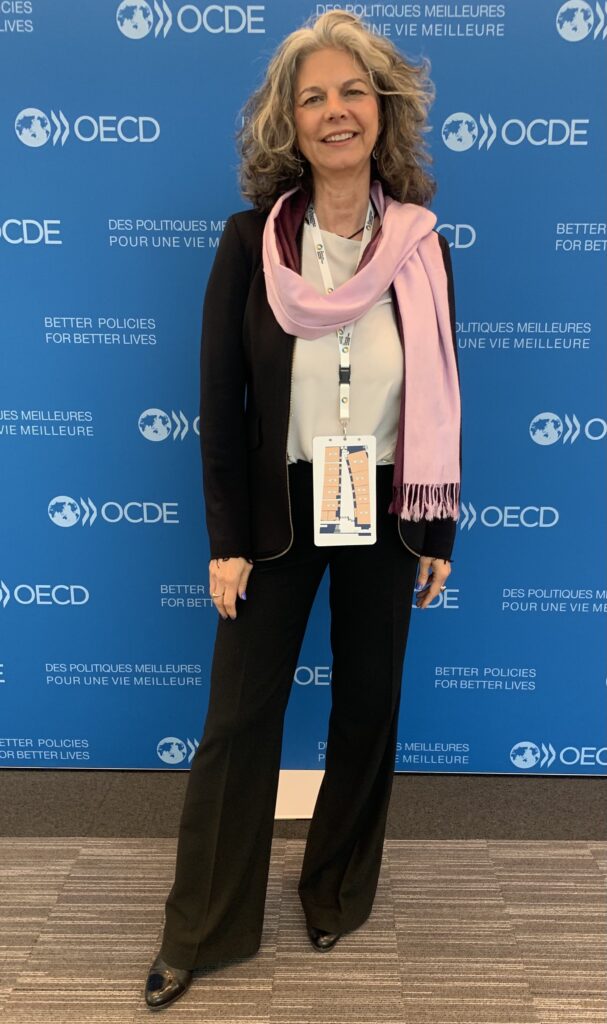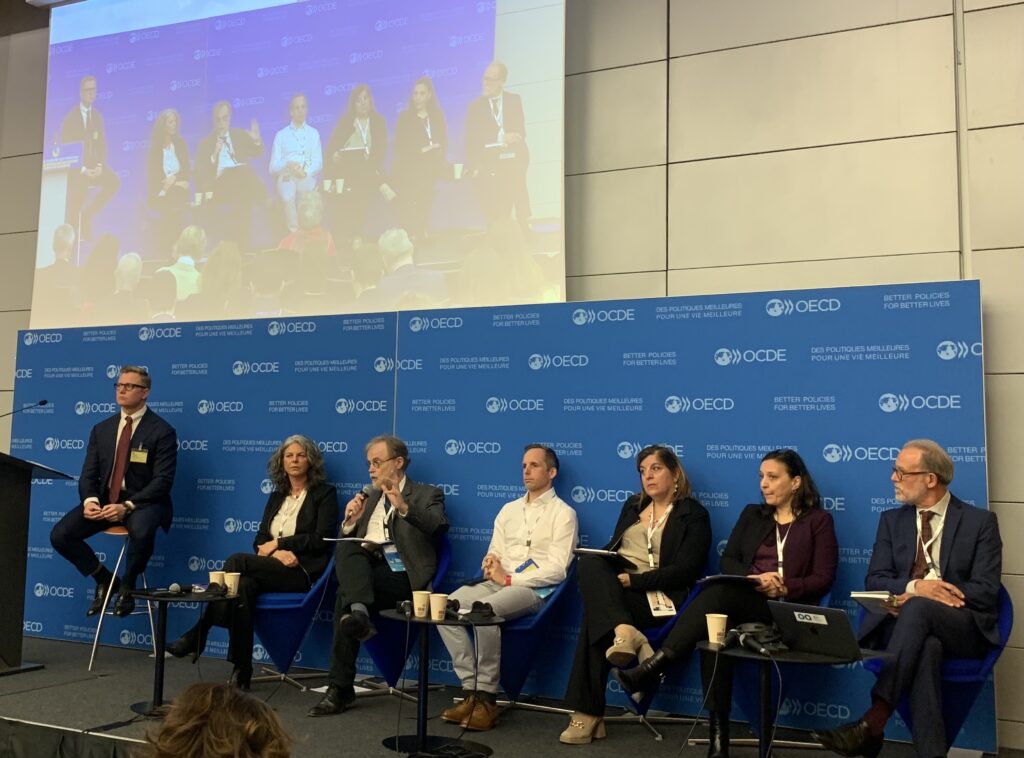At the OECD STI Multi-Stakeholder event ‘Shared challenges, transformative actions’, on 23 April, CODATA President, Mercè Crosas, was the first speaker on a panel with the theme ‘Making Open Science a reality for the benefit of society’.
 Mercè started by arguing that Open Science can best be understood as ‘being scientific’, doing science properly, according to longstanding scientific principles but in the context of 21st century technologies. Doing science properly means that scientific claims must be verifiable. This in turn means that the data, methodologies, protocols and analytical code must be available for scrutiny. Furthermore, science builds on previous work, stands on the shoulders of giants, and so the historical corpus of scientific claims and knowledge must be open as a shared heritage and resource of humankind.
Mercè started by arguing that Open Science can best be understood as ‘being scientific’, doing science properly, according to longstanding scientific principles but in the context of 21st century technologies. Doing science properly means that scientific claims must be verifiable. This in turn means that the data, methodologies, protocols and analytical code must be available for scrutiny. Furthermore, science builds on previous work, stands on the shoulders of giants, and so the historical corpus of scientific claims and knowledge must be open as a shared heritage and resource of humankind.
Having set the scene in this way, Mercè went on to make four specific points and calls for action.
- Open science must be global and inclusive.
- Seize the opportunity of AI and sensitive data.
- Engage wider society in Open Science.
- Make Open Science work through the science of science.
Open science must be global and inclusive: it is essential Open Science works globally, including the global south, and that no-one is left behind. In this context, international organisations, like ISC and CODATA, as well as intergovernmental bodies and entities of the UN system, can play an essential role in pursuing the goal of ensuring Open Science is inclusive and benefits all. An important challenge is to harmonise indicators and standards for Open Science, while also ensuring that these are sensitive and calibrated to the requirements of different disciplines and to a range of economic contexts.
Seize the opportunity of AI and sensitive data: there is an apparent tension between AI and sensitive data on the one hand and with Open Science on the other. It is essential to convert this tension into opportunities. While being rigorous in ensuring the necessary protections in relation to sensitive data, it is nevertheless important to maximise the way in which these can be used safely for science. For sensitive data, the scientific community can develop further privacy-preserving tools, such as differential privacy or synthetic data, to enable analysis and release of data without risk of re-identification. Similarly, it is vital to seize the opportunity of AI. Mercè argued in relation to AI that it is essential to bring AI ‘into’ Open Science practices, and to ensure that there are high quality, reliable training sets for science and that the algorithms and processes in AI are open.
Engage wider society in Open Science: Open science does not just involve academia, its vision is to maximise the societal benefit of science by engaging and involving all of society in science. An important dimension is access and use of governmental data, data from the private sector and from civic organisations.
Make Open Science work through the science of science: It is important to make better use of the scientific study of science, at an international level, to understand how science functions. Rigorous research about the practices, barriers, and incentives in relation to Open Science is our best guide to understanding how Open Science can work.
Other important themes of the panel and discussion included the need for approaches to Open Science monitoring that provide an accurate understanding of progress, including encompassing the diversity of practices and requirements across different research disciplines, and recognising the range of contexts, particularly in the global south.
Also recognised was the significance of the UNESCO Recommendation as the first major, normative and standard setting instrument on Open Science, endorsed by the vast majority of countries and representing an agreement of the UNESCO member states.

Panel: ‘Making open science a reality for the benefit of society’, from left to right:
- Panel moderated by David Budtz Pedersen, professor of Science Communication, Aalborg University.
- Mercè Crosas, Head, Computational Open Sciences, Barcelona Supercomputing Center and President, CODATA
- Marin Dacos, National Open Science Coordinator, Ministry of Higher Education and Research, France
- Iain Hrynaszkiewicz, Director, Open Research Solutions, PLOS
- Natalia Manola, CEO, OpenAIRE AMKE
- Ana Persic, Programme Specialist, UNESCO
- John Schneider, Senior Advisor, Global Earthquake Model (GEM) Foundation
- Panel introduced by Carthage Smith, OECD Global Science Forum
